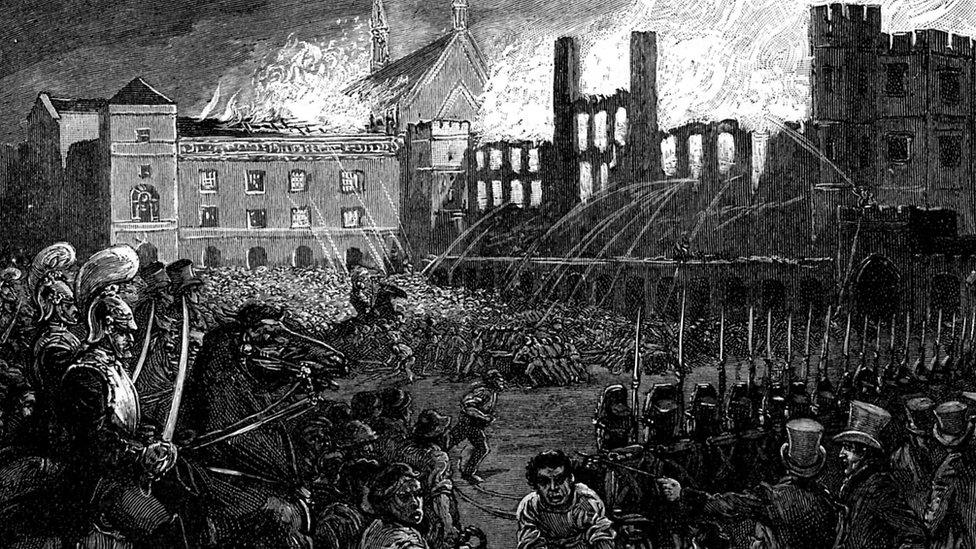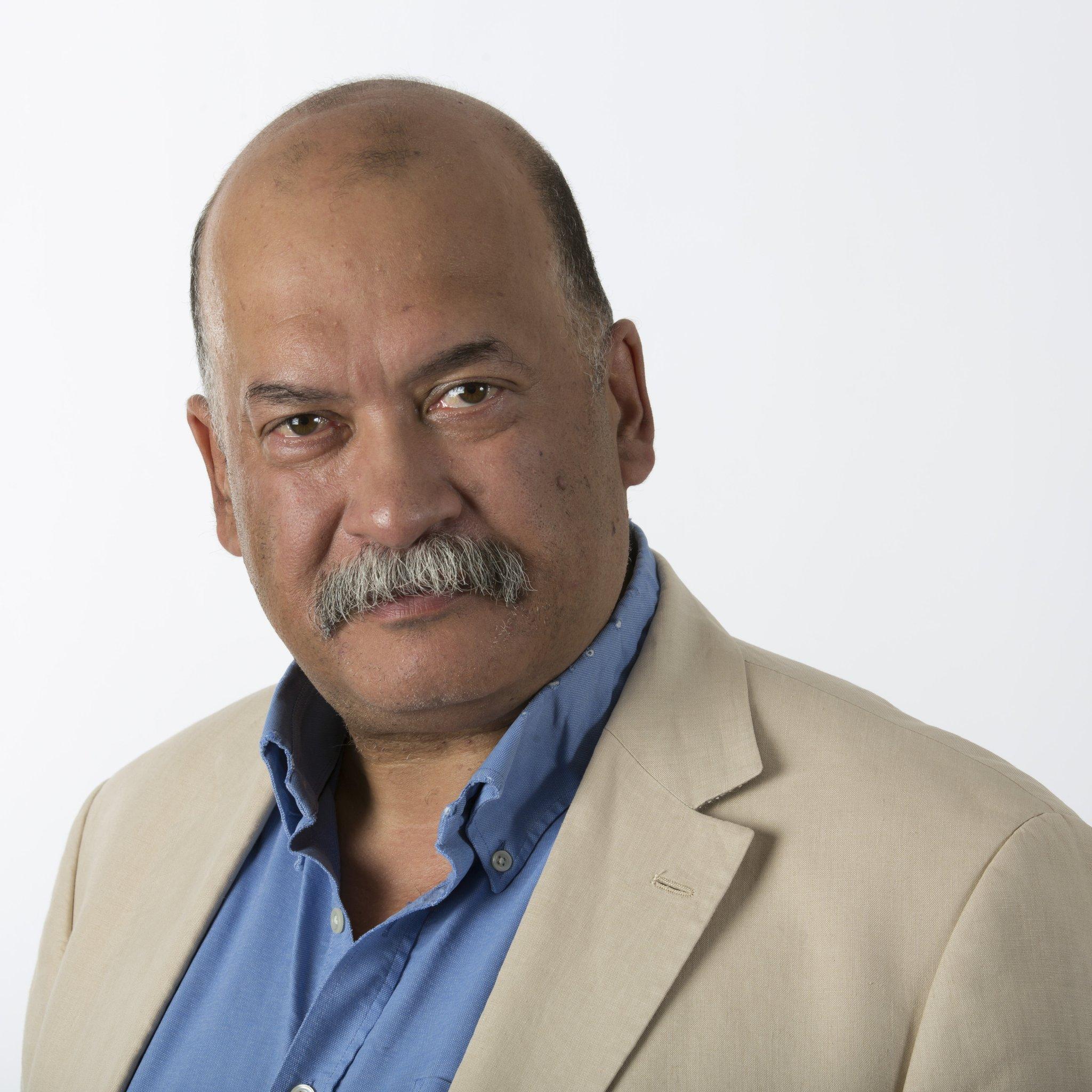General election 2019: Leaders worried trust is at stake
- Published

There's nothing new about politicians trying to please the crowd, or people lacking faith in politicians.
Back in 1834, when Westminster caught fire, a large crowd turned out to cheer, external on the fire.
What's new now is the scale of the promises, the polling evidence that public trust in politicians is as low as its been in modern times, and the clear signs that voters' loyalty to political parties is looser than we've seen before.
That's arguably driving parties to make increasingly extravagant promises.
We are seeing the biggest spending plans from the Tories since before the financial crash.
And the biggest borrowing plan by Labour since the 1970s.
So a big factor in deciding this election will probably be who's trusted least?
And it's not just about the economy.
There's growing suspicion around the government's seeming slow progress in publishing a report by the Commons Intelligence Committee on Russian influence.
There've been reports today that it discusses, among other things, political donations by named wealthy Russians to the Tory Party.
It's not suggested the donations were illegal. Donations from people registered to vote in the UK are perfectly lawful.
But there's a long-running question about whether it's possible to buy political influence.
There's also controversy surrounding Russian investment in the UK, and of course, interference in UK elections.
We don't know the MPs' verdict. We haven't seen it.
And that's the problem.
A high-ranking former MI6 official I spoke to today said the controversy itself was destabilising and that alone amounted to a win for President Putin.
All the party leaders are worried trust is at stake in this election.
Whether you believe them or not, for anyone concerned about the health of politics, it's true.
